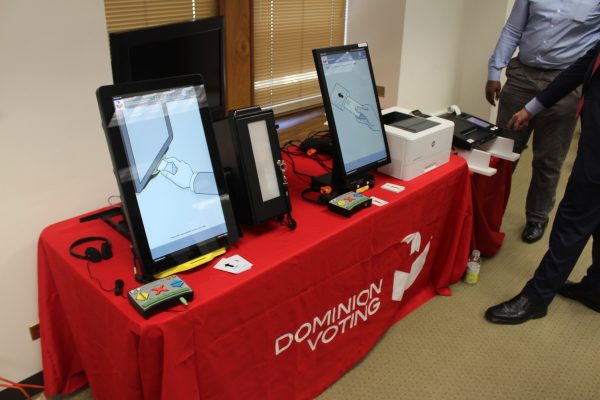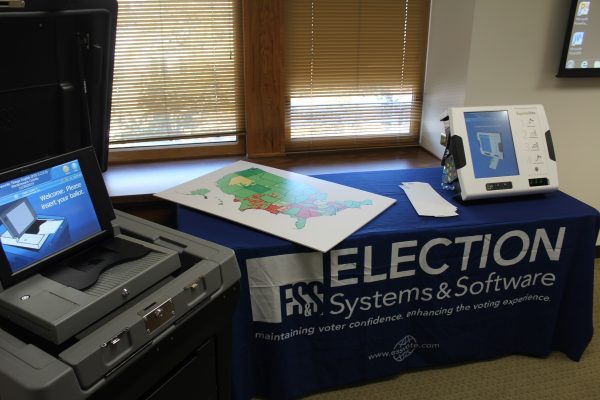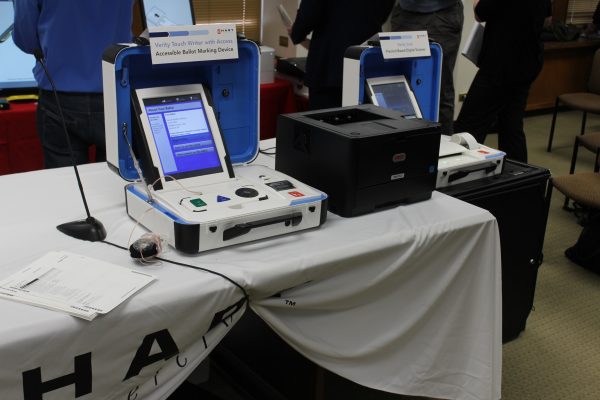Election Tech Companies Show Potential Replacements For Ga. Voting Machines

Georgia state Rep. Chuck Martin asks a question of Dominion Voting’s Michael Greenman, as members of the House Science and Technology Committee try out voting machines.
Johnny Kauffman / WABE
Some of the nation’s top election technology companies explained to state lawmakers Thursday how they might replace Georgia’s 15-year-old electronic voting machines, which have been phased out in many states around the country.

Inside a cramped room at the state Capitol, members of the House Science and Technology Committee huddled around Michael Greenman, a sales representative with Dominion Voting. They looked over a table with computers on it, and the lawmakers tapped on approximately 3-foot touchscreen monitors and watched laser printers shoot out ballots.
Similar voting machines from two other companies, Election Systems and Software and Hart Intercivic, were also on display.
All of the systems included a paper record and the option for a touchscreen monitor that prints out an anonymous copy of the voters’ selections, which they can verify reflects their choices.

Georgia is one of five states where voting machines currently have no paper trail, and cybersecurity experts agree that exposes the system to potential doubt, hacks and glitches.
“The bottom line is you want to have that fail-safe, so that the system can be checked with an audit and, if necessary, be recounted with a physical record, and that’s provided with a paper ballot,” said Susan Greenhalgh with Verified Voting, a nonprofit, nonpartisan organization that advocates for accuracy, transparency and verifiability of elections. She presented to the committee Thursday.
The Georgia Secretary of State’s office recently initiated a trial run of an Election Systems and Software voting machine system in a small municipal election in Conyers. It replaced the state’s current electronic voting machines with monitors that print out a ballot for voters to review and then drop in a secure box.

But using a pencil to fill in bubbles on a regular piece of paper makes for the most secure, efficient and affordable voting system, Greenhalgh said. In that setup, an optical scanner reads and counts the ballots.
“Optical scan, by far, is the most popular voting system in the country,” Greenhalgh said.
Dominion Voting, Election Systems and Software and Hart Intercivic could sell Georgia such a system, if that’s what state lawmakers decide to do. Any significant change to the current system would require legislation — and money.
Greenman and other representatives from the companies appeared eager to show they could be flexible to accommodate what the state wants.
“You’re the policymakers. You tell us what are the rules in Georgia,” he told the House Science and Technology Committee.
Company representatives said it would take them a year or less to replace Georgia’s 27,000 voting machines used in 159 counties, depending on the complexity of the election system.








